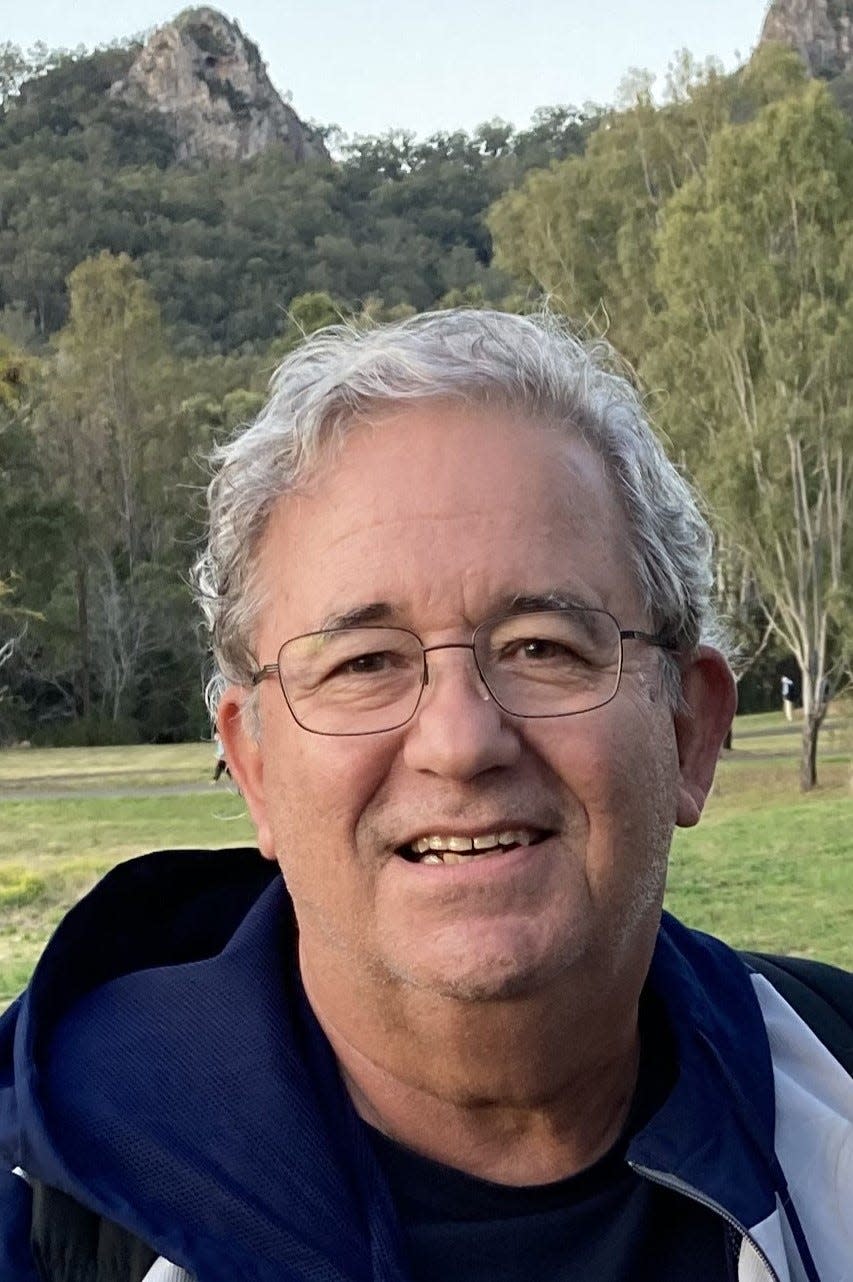Opinion: Mexican immigrants to Asheville worked hard, raised family, benefit our economy
“I know poverty and I know fear,” he said. Then he told me his story about pursuing the American dream.
“The fear I know is from lying on the ground under a bush in the desert at night, with police car lights flashing in the distance, without moving, hiding, praying, waiting for the 'coyote' to give the signal that it is OK to move on. And the poverty I know has to do with wearing the same pair of pants, the same underwear, socks, shoes and shirt for 15 days while crawling, running and sweating in the desert.”
His name is Jose, born in Veracruz, Mexico, the third of six children. His mother made a living selling snacks on the street. Her name is Laura, she was also born in Veracruz, the youngest of 12 children, whose mother was a single mom who worked on coffee farms.
Jose and Laura met in school and started dating when she was 14. Four years later they got married. She was 18 and Jose was 20. They married their school sweethearts.
Jobs were very scarce in Veracruz and any money coming in was just enough for food. The future looked bleak. During that time, Jose learned that many of his friends were going to the United States, some to work in circuses and fairs, others to work on farms. He heard that somebody in Monterrey, Mexico, was recruiting people to work on tobacco farms. The job came with a six month permit to work in the United States. He took it, left Laura and their two children in Veracruz, jumped on the back of a crowded truck, crossed the border, and worked on tobacco farms in the United States for two years.
He overstayed his six month work visa and continued working to save money to bring Laura to join him. Paying about $1,000 to a coyote made it possible (now coyotes charge up to $14,000). Laura crossed the border, leaving her children with Jose’s family. Laura did not suffer much crossing the border, she just had to walk. In fact, it was an easy walk into the United States. She was lucky to be assisted by a savvy and honest coyote with years of experience. But not all are so lucky.
After two years, Jose went back to Veracruz to fetch his children; and with his children in tow, he crossed the border on foot around Ciudad Juarez. He was with a group of about 15 people guided by a good coyote. He soon learned that nothing prepares you for comforting two very scared, hungry, and tired 10 and 11 year olds while walking in the desert at night. The first paragraph of this story is a good recollection of the anguish Jose felt crossing the border with his children. But they made it.
Laura and Jose have been living in Asheville for about 20 years. When they first came, Jose worked washing dishes in restaurants, shoveling snow, blowing leaves and in a factory — where he and many undocumented immigrants worked 12 hours per day, seven days per week. Laura worked in tiendas (Latino grocery stores).
As many Hispanic immigrants today, they live in a trailer park. Through their hard work cleaning houses for the past 10 years, they were able to purchase the trailer but not the land. In trailer parks, the landlord owns the land and most Hispanic immigrants are tenants. Like many, they live in constant fear of eviction.
“Was it worth it?” I ask. “Yes,” Laura responds with a smile. “Our children are good people. Both are now adults, went to school and have good jobs. They are married and live nearby. Both are under the Deferred Action for Childhood Arrivals (DACA) policy. We have been praying for 10 years for DACA to continue. We pray every day.”
Jose and Laura also live by the most important advice their mothers gave them: “Never take anything that does not belong to you, not even a needle.” Being honest and truthful are gifts their mothers gave them, gifts that have guided them during their entire lives, gifts they hold very close to their hearts.
More: Opinion: US should do more to help Latin American neighbors build better lives
More: Opinion: US needs immigrants, who will be powerful engine of economic growth

Carlos Linares is an international development and environment specialist with 45 years of experience. He serves as Chair of the Buncombe County Democratic Party Hispanic Outreach Committee, Secretary of the Lake Committee in Biltmore Lake, and member of the Community Advisory Board of Blue Ridge Public Radio/NPR.
This article originally appeared on Asheville Citizen Times: Opinion: Mexican immigrants to Asheville brave dangers for better life
